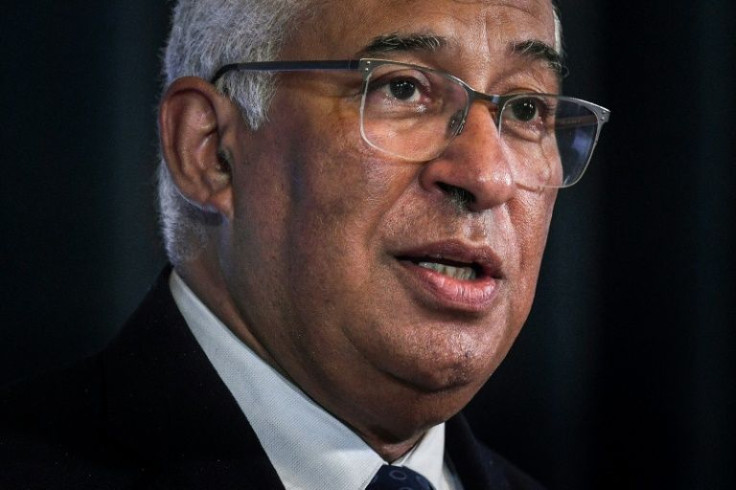Portugal's PM Antonio Costa, A Pragmatic Socialist
Portugal's Prime Minister Antonio Costa, whose Socialists face a close-fought snap election on Sunday, is a pragmatic tactician who came to power with the support of the hard-left.
The former mayor of Lisbon took the reins in 2015 following a ballot in which his Socialists finished second behind a centre-right coalition that had overseen a harsh EU-imposed austerity programme.
In a surprise move, he convinced two smaller hard-left parties to support a minority Socialist government, the first time this had been tried in Portugal.
Many analysts predicted the government -- dubbed the "geringonca" or "contraption" -- would last six months at most, but it completed its four-year mandate.
Costa then led his Socialists to victory in the next election in 2019, although they fell short of an outright majority.
"Antonio Costa is a very experienced and very ambitious politician. In some contexts there are characteristics that are good qualities, in others they can be seen as flaws," said University of Lisbon political scientist Jose Santana Pereira.
Riding the wave of the global economic recovery and a tourism boom, Costa, 60, managed to undo some of the austerity measures imposed by his predecessors even as his government balanced the books.
On his watch, Portugal in 2019 posted its first budget surplus in 45 years of democracy although the Covid pandemic has since caused the public deficit to balloon once again.
But in October 2021, Costa failed to secure budgetary support from the two smaller far-left parties propping up his government, prompting the snap polls that will be held on Sunday.
Although he has pledged to step down if his Socialists do not come out on top, he has again signalled his willingness to form alliances if his party wins but falls short of a majority again.

"Everyone knows I am a man of dialogue and compromise," the white-haired leader said earlier this year.
Portugal's conservative President Marcelo Rebelo de Sousa, who was Costa's professor at law school in Lisbon, once called the premier out for his "chronic and slightly annoying optimism".
Born in Lisbon on July 17, 1961, Costa was raised in the intellectual circles frequented by his parents, Orlando da Costa, a communist writer descended from a family from Goa, Portugal's former colony in India, and Maria Antonia Palla, a journalist and women's rights advocate.
Nicknamed "babush", a term of endearment for a little boy in Konkani, a Goan dialect, Costa joined the youth wing of the Socialist Party in 1975 when he was just 14, a year after a coup ended a decades-long right-wing dictatorship.
After earning a law and political science degree, Costa was in 1995 named secretary of state for parliamentary affairs -- a key role in the Socialist minority government of Antonio Guterres, the current UN secretary general.
He was promoted to justice minister four years later.
Following a brief stint as a member of the European Parliament, he was appointed interior minister in 2005 in the government of Jose Socrates.
He stepped down after two years and made a successful run for mayor of Lisbon. He was re-elected to the post in 2009 and 2013.
The move to municipal politics allowed Costa to distance himself from Socrates, who stepped down as premier in 2011 after negotiating Portugal's international bailout.
Socrates was arrested in 2014, accused of corruption and tax evasion.
A fan of Lisbon-based Benfica, Portugal's most successful football team, the married father-of-two likes to relax by doing jigsaw puzzles.
© Copyright AFP 2024. All rights reserved.





















